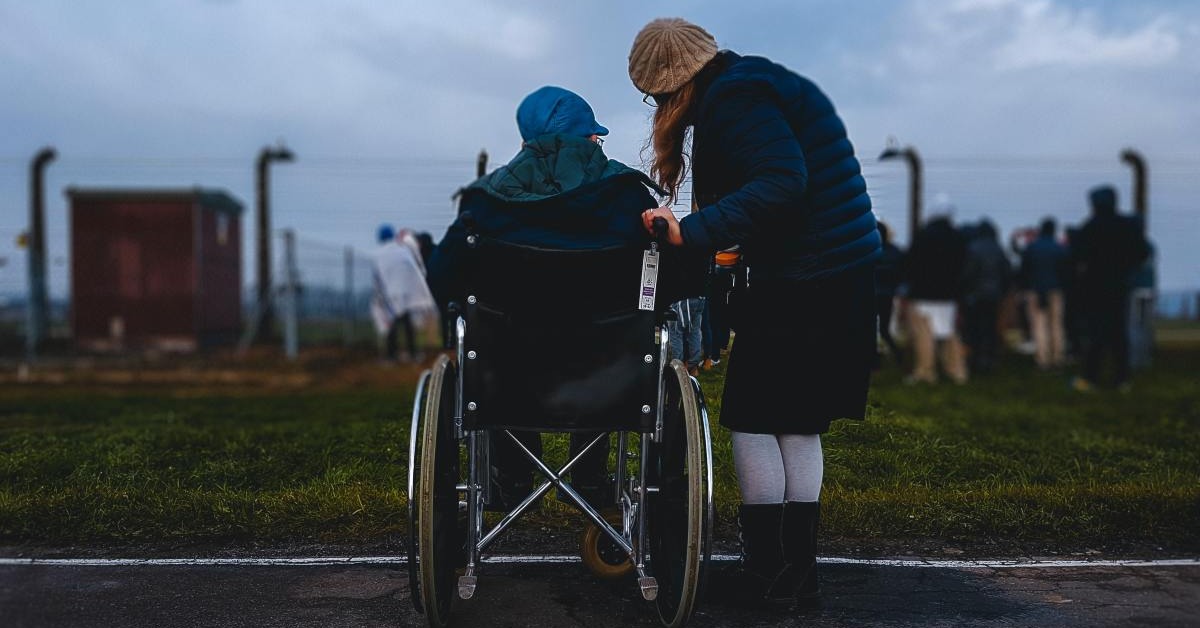
How Much Do Geriatric Social Workers Make?
Geriatric social workers do meaningful work for the betterment of [...]

This website may earn a commission if you make a purchase after clicking on a product link in this article
In Tuesdays With Morrie, Mitch Albom writes: “As you grow, you learn more. Aging is not just decay… it’s growth.” If you’ve ever laughed—and cried—your way through this best-selling book, you know that it’s packed with life lessons that showcase the value of spending time with one’s elders. Seniors have much to teach us—and we have a responsibility to support them as they navigate their golden years.
That’s where geriatric social workers (sometimes called gerontological social workers) can make a major impact.
Geriatric social workers assist seniors with a variety of decisions and processes that invariably accompany aging. They also help families stay connected to their aging loved ones. Along the way, geriatric social workers can form powerful bonds with their patients.
This article on how to become a geriatric social worker will cover:
The U.S. Census Bureau projects that the 65-and-over population will grow to 83.7 million by 2050. That nearly doubles the 2012 population (43.3 million), and represents an increase from 14 percent to over 20 percent of the total population. The baby boomers, currently America’s largest living demographic group, are driving this population shift.
As a result, the job outlook for geriatric social workers is excellent. The Bureau of Labor Statistics (BLS) projects an 11 percent job growth rate for all social workers between 2018 and 2028; demand should be particularly high in rural areas with limited care providers. Given the rapid growth rate of the aging population, job opportunities for geriatric social workers could increase even more dramatically.
While the job outlook for geriatric social workers is excellent, the pay may be less enticing; the median salary for geriatric social workers is slightly under $50,000. That’s about on par with what the average social worker in all fields earns, but if you’re looking for lawyer or doctor money, you’ll need to look elsewhere.
| University and Program Name | Learn More |
|
Merrimack College:
Master of Science in Clinical Mental Health Counseling
|
|
|
Virginia Commonwealth University:
Online Master of Social Work
|
A typical day for a geriatric social worker may include the following activities:
Geriatric social workers need basic social work competencies to make sure they can effectively meet patient’s needs. These include:
Social work requires a high level of specialized formal education (spoiler alert, it will probably end with a master’s degree). First, you’ll need a Bachelor’s in Social Work (BSW) from a Council on Social Work Education (CSWE)-accredited institution. A specialization in gerontology is nice but not necessary; a bachelor’s degree in psychology or sociology is also acceptable.
You might want to consider these bachelor’s degree programs:
Most social work employers also require a master’s degree—typically a Master of Social Work (MSW) with a focus in gerontology.
The following MSW programs focus on geriatrics:
Geriatric social workers must apply for licensing through the National Association of Social Workers (NASW). There are several steps to maintaining licensure throughout one’s career:
(Last Updated on February 26, 2024)
Questions or feedback? Email editor@noodle.com

Geriatric social workers do meaningful work for the betterment of [...]

Social workers holding MSWs will continue to be in demand [...]

Social work organizations like the National Association of Social Workers [...]

The demand for pharmacists is projected to decline slightly in [...]

MSWs have plenty of career options outside of one-on-one therapy [...]
Categorized as: Counseling, Social Work, Social Work & Counseling & Psychology